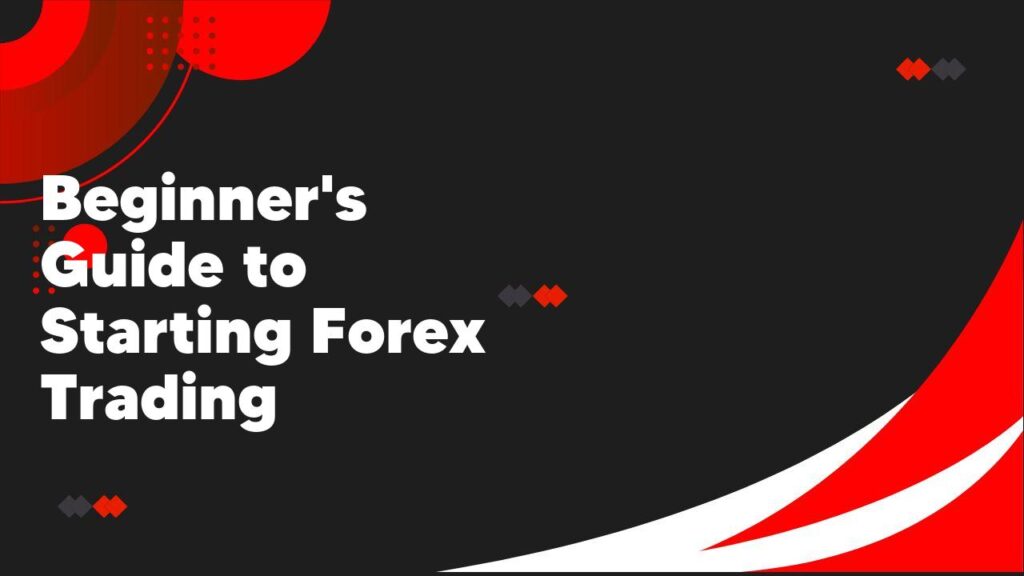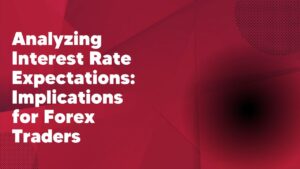Are you looking to delve into the world of Forex trading? Whether you are brand new to trading or have some experience in the financial markets, this beginner’s guide is here to help you get started on your Forex trading journey. In this guide, we will walk you through the basics of Forex trading, from understanding what Forex is and why it is a popular market, to providing you with essential tips and strategies to trade successfully. You can expect to learn about the different currencies and currency pairs, how to read and analyze Forex charts, and the key factors that can affect currency prices. Additionally, we will discuss the various trading platforms and tools available to help you execute your trades and monitor the market. By the end of this guide, you will have a solid foundation to kickstart your Forex trading career.
Understanding Forex trading basics
Forex trading, also known as foreign exchange trading, is the act of buying and selling currencies on the foreign exchange market. It is the largest and most liquid financial market in the world, with daily trading volumes reaching trillions of dollars. The primary objective of forex trading is to profit from fluctuations in currency exchange rates. Traders speculate on whether a particular currency will appreciate or depreciate against another currency and take positions accordingly. The forex market operates 24 hours a day, five days a week, allowing traders from around the world to participate at any time. To get started in forex trading, it is essential to understand concepts such as currency pairs, bid and ask price, spread, leverage, and margin. Additionally, traders need to have a solid understanding of technical analysis, fundamental analysis, and risk management. Forex trading carries a high level of risk, and it is crucial to have a well-thought-out trading plan and a disciplined approach to manage potential losses. With the right knowledge, skills, and strategies, forex trading can be a profitable venture for individuals looking to diversify their investment portfolio or to earn additional income.
Choosing a reliable Forex broker
Choosing a reliable Forex broker is essential for any trader looking to engage in the foreign exchange market. With numerous options available, it can be overwhelming to find the right broker that meets your requirements. The first step is to ensure that the broker is regulated by a recognized financial authority, such as the Financial Conduct Authority (FCA) or the National Futures Association (NFA). This provides a level of trust and accountability, as regulated brokers are required to meet strict standards and adhere to certain regulations. Additionally, it is important to consider the broker’s trading platforms and tools. A user-friendly platform with comprehensive charting and analysis tools can greatly enhance your trading experience. Furthermore, evaluating the broker’s customer support services is crucial. A responsive and knowledgeable support team can help address any concerns or issues you may have, ensuring a smoother trading experience. Lastly, it is vital to compare the broker’s fees and spreads. High fees can eat into your profits, so finding a broker with competitive pricing is key. By considering these factors and conducting thorough research, you can choose a reliable Forex broker that aligns with your trading goals and needs.
Essential tools for Forex trading
When it comes to Forex trading, having the right tools can make all the difference in your success. One essential tool that every Forex trader needs is a reliable trading platform. This is where you will execute your trades, analyze charts, and monitor the market. It is important to choose a platform that is user-friendly and offers a wide range of technical indicators and charting tools. Another important tool is a Forex calendar. This will help you stay on top of economic news and events that can significantly impact currency prices. A good calendar will provide you with real-time updates and allow you to filter news based on importance and currency pairs. Additionally, a quality Forex broker is crucial for successful trading. Your broker should offer competitive spreads, a variety of currency pairs to trade, and reliable customer service. Lastly, having a trading journal is vital for tracking your trades and analyzing your performance. This will help you identify patterns, strengths, and weaknesses in your trading strategy, allowing you to make improvements over time. Overall, these tools are essential for any Forex trader looking to achieve consistent profitability in the market.
Developing a Forex trading strategy
Developing a Forex trading strategy is a crucial step in achieving success in the foreign exchange market. A well-thought-out strategy can help traders navigate the volatile currency markets and make informed decisions. The first step in developing a strategy is to analyze the market and understand its underlying trends and patterns. This involves analyzing various technical indicators such as moving averages, trend lines, and support and resistance levels. Traders should also consider fundamental analysis, which involves studying economic factors and news events that can impact currency prices. Once traders have gathered this information, they can create a trading plan that outlines entry and exit points, risk management strategies, and profit targets. It is important to test and refine the strategy over time, adapting it to changing market conditions. Traders should also have realistic expectations and be prepared for ups and downs. With a well-developed Forex trading strategy, traders can increase their chances of success in the competitive Forex market.
Managing risk in Forex trading
Managing risk in Forex trading is crucial for long-term success. One of the first steps in risk management is to set a stop-loss order. This order automatically closes a trade if the market moves against your position, limiting potential losses. It is also important to have a well-defined trading strategy that includes risk parameters, such as the maximum amount of capital to risk on each trade and the maximum drawdown allowed. Additionally, diversifying your trading portfolio can help manage risk by spreading it across different currency pairs and asset classes. Regularly reviewing and adjusting risk management measures is also essential, as market conditions and individual trading strategies may change over time. Ultimately, successful Forex traders understand that managing risk is not about avoiding losses altogether but rather about controlling and minimizing them to protect their capital and maximize their profits.
Practicing with demo accounts
For anyone entering the world of Forex trading, practicing with demo accounts is an essential step towards success. These accounts provide aspiring traders with a risk-free environment to learn and hone their skills. By simulating real trading conditions and allowing users to trade with virtual money, demo accounts offer invaluable hands-on experience. This platform allows traders to practice various strategies and techniques, gaining insight into the nuances of the Forex market. Taking advantage of demo accounts also facilitates the understanding of essential concepts such as risk management and analyzing market trends. Moreover, traders can evaluate their performance and assess the effectiveness of their strategies without the fear of losing real money. Demo accounts thus serve as a vital stepping stone for traders to gain confidence and develop a solid foundation before venturing into live trading. Whether you are a novice or an experienced trader, incorporating demo account practice into your routine can significantly enhance your trading skills and increase your chances of success in the Forex industry.
Analyzing Forex market trends
Analyzing Forex market trends is crucial for successful trading. As an experienced content writer in the Forex industry, I understand the importance of staying updated on market movements and identifying potential opportunities. The Forex market is highly volatile and influenced by various factors such as economic indicators, geopolitical events, and central bank policies. By analyzing these trends, traders can make informed decisions about buying or selling currencies. Technical analysis tools, such as chart patterns, indicators, and price action analysis, can provide valuable insights into market trends. Fundamental analysis, on the other hand, involves examining economic data and news releases to gauge the overall health of a country’s economy and predict future currency movements. Combining both technical and fundamental analysis can provide a well-rounded view of the Forex market and increase the chances of profitable trades. Additionally, keeping an eye on market sentiment and understanding the psychology of other traders is also crucial for successful analysis. By continuously monitoring and analyzing market trends, traders can adapt their strategies accordingly and improve their chances of success in the Forex market.
Tips for successful Forex trading
Successful Forex trading requires a combination of knowledge, skills, and discipline. Firstly, it is important to thoroughly educate yourself about the Forex market and understand the fundamental and technical analysis tools used for trading. This will enable you to make informed decisions and develop profitable trading strategies. Secondly, practice is crucial. Start with a demo account to gain hands-on experience and test your trading strategies in a risk-free environment. This will help you fine-tune your approach and identify any weaknesses in your trading plan. Additionally, it is essential to manage risk effectively. Set strict stop-loss orders to limit potential losses and never risk more than a small percentage of your trading capital on a single trade. Implementing proper risk management techniques will protect your account from large drawdowns and increase your chances of long-term success. Furthermore, maintain a trading journal to track your trades and evaluate your performance. Regularly review your trading journal to identify patterns and tendencies that can be improved upon. Lastly, remain disciplined and control your emotions. Emotion-driven trading can lead to impulsive decisions and potential losses. Stick to your trading plan and avoid chasing trades. By following these tips, you can increase your chances of achieving success in Forex trading.
Conclusion
In conclusion, starting forex trading can be an exciting and potentially profitable venture for beginners. It is important to approach forex trading with caution and to thoroughly educate oneself on the fundamentals of the market. Developing a solid trading strategy, practicing risk management techniques, and staying updated on market trends are crucial for success. Additionally, utilizing demo accounts and seeking guidance from experienced traders can help beginners gain confidence and improve their skills. While forex trading can be complex and volatile, with careful planning and continuous learning, beginners can navigate this market and potentially achieve financial success. It is important to remember that trading in forex involves risk and individuals should only invest capital that they are prepared to lose. Overall, with determination, perseverance, and the right mindset, beginners can embark on their forex trading journey with confidence.
1. What is Forex trading?
Forex trading, also known as foreign exchange trading, is the process of buying and selling currencies on the foreign exchange market. It involves speculating on the price fluctuations of different currencies to make a profit.
2. How do I start Forex trading?
To start Forex trading, you need to open an account with a reputable Forex broker, deposit funds into your account, and download a trading platform. Once you have set up your account, you can start placing trades and managing your positions.
3. What is a currency pair?
A currency pair in Forex trading refers to the two currencies being traded against each other. For example, the EUR/USD currency pair represents the exchange rate between the Euro and the US Dollar. The first currency in the pair is known as the base currency, while the second currency is the quote currency.
4. What are pips?
Pips are the smallest unit of measurement in Forex trading. They represent the price movement of a currency pair. A pip is usually measured as the fourth decimal place in most currency pairs. For example, if the EUR/USD pair moves from 1.2500 to 1.2501, it has made a one-pip move.
5. How can I manage risk in Forex trading?
Managing risk in Forex trading is crucial to protect your capital. You can manage risk by setting stop-loss orders to limit potential losses, using proper position sizing techniques, and diversifying your trading portfolio. It is also important to have a well-defined trading plan and stick to it.
6. What are the trading hours for Forex markets?
Forex markets are open 24 hours a day, five days a week. The major trading sessions include the London session, New York session, and Asian session. It is important to note that different currency pairs may have varying levels of liquidity during different trading sessions.


